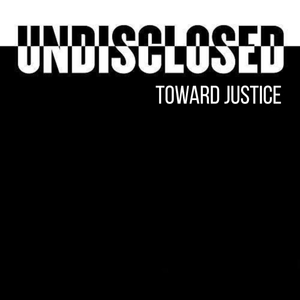
6. What Slavery Engendered: An Intersectional Look at 1619
11/14/19 • 50 min
Previous Episode

5. Stonewall 50: Whose Movement Is It Anyway?
Today marks the 50th anniversary of the Stonewall Uprising, the wrenching demonstration against a police raid on the Stonewall Inn, a gay bar and refuge for queer and trans people in Lower Manhattan. The courageous act of resistance that took place over the course of several days in 1969 is widely perceived as the catalyst to the modern LGBTQ+ liberation movement in the United States. As Pride month reaches an exuberant crescendo this weekend with World Pride in NYC, an event that’s one part party, one part protest, questions about the trajectory, priorities, and composition of the movement persist, including how to best foreground the lives and concerns of members of the LGBTQ+ community whose experience is filtered through the interstices of more than one form of oppression. On this episode of Intersectionality Matters, host Kimberlé Crenshaw ponders these questions with two of the movement’s torchbearers: Barbara Smith, trailblazing Black feminist critic and co-founder of the Combahee River Collective, and Phyll Opoku-Gyimah, also known as Lady Phyll, co-founder and executive director of UK Black Pride. Tune in for their fascinating insights on living in the overlapping margins of race, gender and sexuality, the future of LGBTQ activism and their commitments to retrieving the experiences of queer Black women from a location that resists telling. Hosted by Kimberlé Crenshaw (@sandylocks) Produced and edited by Julia Sharpe Levine Recorded by Elizabeth Press, the Sanctuary for Independent Media, and Michael Kramer Music by Blue Dot Sessions With: Lady Phyll (@msladyphyll), Barbara Smith (@thebarbarasmith), and the Reclaim Pride Coalition (Colin Ashley, Robert Baez, Francesca Barjon) (@queermarch) Intersectionality Matters: ig: @intersectionalitymatters, twitter: @IMKC_podcast Additional support from G'Ra Asim, Naimah Hakim, Madeline Cameron Wardleworth, Peter Gaber, Ezra Young ~~~ NYC Trans Day of Action Friday, June 28 from 4-6pm: https://alp.org/events/15th-annual-trans-day-action NYC Dyke March Saturday, June 29 from 5-8pm: https://www.nycdykemarch.com/ Queer Liberation March Sunday, June 30 from 9:30-3pm: https://reclaimpridenyc.org/ World Pride Parade Sunday, June 30 at 12pm: https://2019-worldpride-stonewall50.nycpride.org/ UK Black Pride Saturday, July 7 at 12pm: https://www.ukblackpride.org.uk/
Next Episode

7. When They See Her: The Story of Michelle Cusseaux
December 14th, 2019 marks the fifth anniversary of the Say Her Name campaign, a movement founded to raise awareness of the names and stories of Black women, girls and femmes killed by police, and to provide support to the families affected. The campaign has produced a groundbreaking report expanding the conversation on police violence so that it foregrounds the experiences of Black women and girls, earned a nod in a tweet from a major presidential candidate, developed a multimedia arts-activism venture called Say Her Name: The Lives That Should Have Been, and convened the #SayHerName Mothers Network, a community for mothers of Black women lost to police violence. But none of these developments would be possible without the courage, resilience and ingenuity of Fran Garrett, the mother of Michelle Cusseaux. Cusseaux, a 50-year-old Black woman, was shot and killed on August 14, 2014 by Officer Percy Dupra while Phoenix police were trying to serve a mental health wellness check. Her life was taken just days after the police killing of Ferguson, MO teenager Mike Brown became national news, sparking nationwide outrage and galvanizing the modern movement for Black lives. To help Cusseaux’s story gain resonance in its own right, Garrett led a group of local activists in marching her daughter’s casket through downtown Phoenix, calling for an outside agency to investigate the shooting and a slew of reforms aimed at racial justice and mental health parity. It was this brave act that drew the attention of the African American Policy Forum, which catalyzed the Say Her Name campaign and the delineation of a throughline linking the loss of Cusseaux with countless other Black women like her lost too soon to state violence. Garrett’s bid for broader attention to the cause was amplified a few months later at the Millions March NYC, where AAPF made an intersectional intervention by saying the names of Michelle and other slain Black women to politicize their legacies alongside the demands made on behalf of Brown and other victims of police violence. On this special episode of Intersectionality Matters, Kimberlé Crenshaw dives deep with Fran Garrett to go beyond the headlines for the unvarnished truth on the unspeakably tragic loss of a beloved Phoenix community member. Tune in as they take stock of the movement’s progress five years in and assess the headway still to be made in making Black women’s vulnerability to police violence fully legible as a social problem. Music by Blue Dot Sessions Produced and Edited by Julia Sharpe-Levine Recorded by Sarah Ventre and Julia Sharpe-Levine Additional support provided by Andrew Sun, G’Ra Asim, Emmett O’Malley and Michael Kramer Twitter: @IMKC_podcast, IG: @IntersectionalityMatters, Fb: Intersectionality Matters with Kimberlé Crenshaw #IntersectionalityMatters LEARN MORE: http://aapf.org/shn-campaign SAY HER NAME CEREMONY OF REMEMBRANCE (NYC)- https://www.eventbrite.com/e/say-her-name-5th-anniversary-remembrance-ceremony-tickets-85292830151 MICHELLE CUSSEAUX MENTAL HEALTH FAIR (PHX)-https://www.aahherc.com/
If you like this episode you’ll love
Episode Comments
Generate a badge
Get a badge for your website that links back to this episode
<a href="https://goodpods.com/podcasts/intersectionality-matters-39215/6-what-slavery-engendered-an-intersectional-look-at-1619-1703991"> <img src="https://storage.googleapis.com/goodpods-images-bucket/badges/generic-badge-1.svg" alt="listen to 6. what slavery engendered: an intersectional look at 1619 on goodpods" style="width: 225px" /> </a>
Copy




